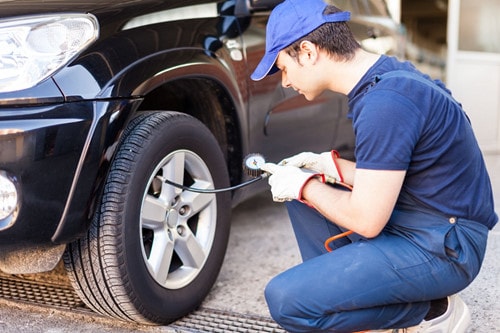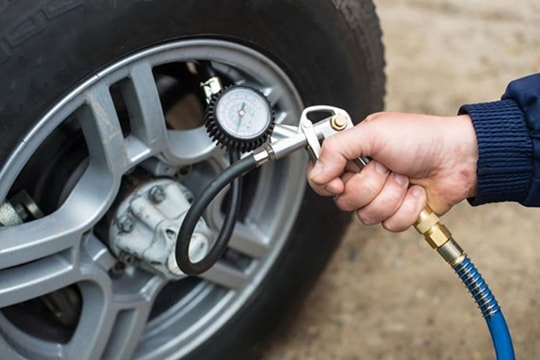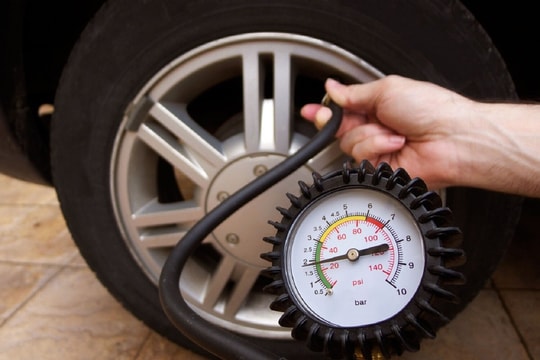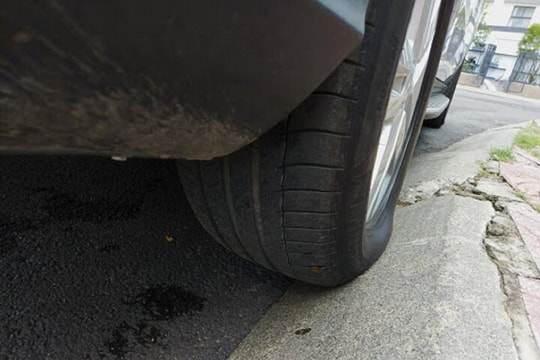Benefits of inflating car tires with nitrogen
Nitrogen gas helps the tire pressure reduction process to take place more slowly, while limiting the corrosion of water vapor on car tires and rims.
Nitrogen gas is used by racing drivers for tires, gradually spreading to commercial vehicles. The effectiveness of this gas is analyzed by technical experts. According toPopular Mechanics, there are several reasons to convince users to use pure nitrogen to inflate tires.
Nitrogen is less permeable to tire rubber than oxygen. This allows tire pressure to remain stable over long periods of time. Racers have found that nitrogen-filled tires lose pressure more slowly with temperature than air-filled tires. This means that pressure remains roughly constant throughout the race, even as the tire heats up. So, when technicians change tire pressure by even half a psi, it can affect performance.
However, these benefits are only really effective on racing cars, with high tire intensity and much higher tire quality. On ordinary cars, the effect is not really obvious.
In air, nitrogen accounts for up to 78%, oxygen less than 21%, the rest includes water vapor, dust and small amounts of noble gases such as neon and argon, which can exclude other gases in small proportions. Therefore, according to Keith Willcome, tire engineer of Bridgestone USA, both air and pure nitrogen react similarly to the ideal gas law, in which temperature and pressure are closely related.
Specifically, for tires, every 10 degrees Celsius change will result in a change in tire pressure of about 1 psi. This change is the same for both nitrogen-filled and air-filled tires. Therefore, if you fill your tires with nitrogen, you should still check your tire pressure once a month.
 |
Nitrogen gas changes pressure more slowly than air. |
In addition to its effect on pressure changes, nitrogen has the advantage of not containing water. Whether in vapor or liquid form in a tire, water can cause pressure changes as the air temperature inside changes. This can cause corrosion on steel or aluminum rims.
Therefore, pumping nitrogen will bring certain benefits to the vehicle. Because the nitrogen pumped into the tire is dry nitrogen, does not contain water. The tire pressure will be maintained longer, reducing costs as well as the number of tire maintenance.
With these benefits, experts recommend using nitrogen or regular air depending on the driver's preference. Under normal operating conditions, the performance is not much different.
The cost of inflating a tire with nitrogen is 2-3 times higher than that of normal air. Currently, the amount that car owners have to pay to inflate a tire with air ranges from 5,000-10,000 VND per time. Meanwhile, if using nitrogen, car owners will lose 20,000-30,000 VND per time.
Appearing in Vietnam for a long time, but not all tire shops have nitrogen pumps. Car owners who want to pump nitrogen may have to travel a longer distance to a center with specialized machines to solve this problem. These are also the two main reasons why many car users in Vietnam choose to pump tires with air. However, a group of careful users who like to take care of their cars still use nitrogen to pump tires.




